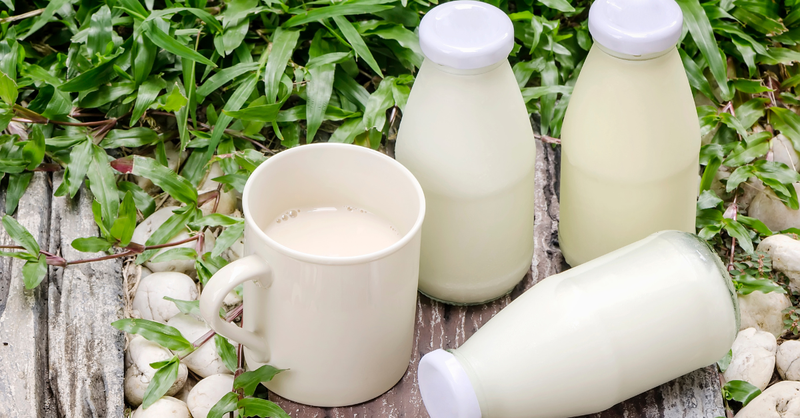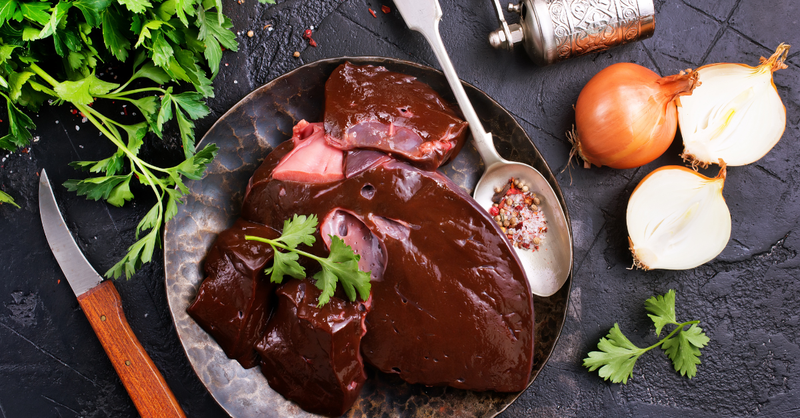Broccoli can be prepared in many different ways such as stir-frying, steaming, boiling or eating raw in salads. With high nutritional value, broccoli is a very healthy food. However, if not prepared properly, this dish can also be harmful. So what is broccoli incompatible with? Who should not eat broccoli to ensure health safety?
Although broccoli is a very delicious and nutritious food, when combined with some other foods, it can cause unwanted effects on health. Some foods can reduce the nutritional value of broccoli or cause adverse reactions when eaten together. So, what is broccoli incompatible with? Let’s find out in the article below so that readers can ensure safety and maximize health benefits.
What is broccoli incompatible with?
What is broccoli incompatible with? Here are some foods you should avoid when cooking with broccoli.
Cow’s milk
Cow’s milk is a drink rich in protein and calcium, which is very good for your health, especially in supporting bones and muscles. However, when combined with broccoli, you need to be careful. Broccoli contains a lot of fiber and oxalic acid, two ingredients that can reduce the absorption of calcium and some other nutrients in cow’s milk. Specifically, oxalic acid can bind with calcium in milk, forming compounds that are difficult to absorb, reducing the effectiveness of calcium for the body. Therefore, if you are wondering what broccoli is incompatible with, cow’s milk is the food that should not be combined. To ensure that the body best absorbs the nutrients from broccoli and cow’s milk, you should separate the eating times between these two foods.

Broccoli combined with cow’s milk can reduce calcium absorption.
Broccoli is incompatible with cucumbers
One of the foods you should avoid when cooking with broccoli is cucumbers. Broccoli is a rich source of vitamin C, which is beneficial for health, especially in strengthening the immune system. However, cucumbers contain a catabolic enzyme, which can break down vitamin C. When cooking cucumbers with broccoli, this enzyme will reduce the vitamin C content in the dish, causing the nutritional value of the dish to decrease. Therefore, to retain maximum nutrition, you should not combine broccoli with cucumbers in dishes.
Beef liver, pork liver
Beef liver and pork liver are foods rich in copper and minerals, but when combined with broccoli, they can cause some problems. The minerals in beef liver and pork liver have the ability to oxidize vitamin C. When eating liver with broccoli, the vitamin C in broccoli will easily oxidize and lose its effectiveness. This interaction can even cause the vitamin C in broccoli to degrade, affecting the nutritional value of the dish and even leading to poisoning. Therefore, it is best to avoid combining broccoli with beef or pork liver in meals.

What foods are broccoli incompatible with? Broccoli is incompatible with beef liver and pork liver.
Nutritional values in broccoli
If we know what broccoli is incompatible with, we should also review the nutritional values in broccoli. Because, if not cooked with incompatible foods, the dish will bring many benefits. Some of the benefits of broccoli include:
Regulating blood sugar
Animal studies have shown that broccoli has the effect of supporting blood sugar control. Specifically, when mice were fed broccoli extracts, their blood sugar levels decreased significantly, showing the potential of broccoli in regulating blood sugar.
Slowing the progression of Alzheimer’s disease
Alzheimer’s is a common neurodegenerative disease in the elderly, mainly caused by the accumulation of amyloid substances and oxidative stress in the brain. Sulforaphane found in broccoli has the ability to protect the brain from the harmful effects of these amyloid substances and helps reduce oxidative stress, thereby helping to slow the progression of Alzheimer’s disease.

Sulforaphane found in broccoli helps slow the progression of Alzheimer’s disease
Improve fatty liver disease
Fatty liver is a condition in which too much fat accumulates in the liver. Some studies have shown that broccoli may help slow the progression of fatty liver disease. However, these studies have only been conducted on animals, so more human studies are needed to confirm the results.
Boost the immune system
Broccoli is a rich source of vitamin C and calcium, two important nutrients that help boost the immune system. Vitamin C helps protect the body from pathogens, while calcium helps maintain oral health, strengthen teeth, and prevent gum problems.
Reduce constipation
A high-fiber diet can aid digestion and help relieve constipation. Broccoli is a rich source of fiber and also contains sulforaphane, a powerful antioxidant. These ingredients help improve digestive function, soften stools and reduce constipation.

Eating broccoli aids digestion and helps relieve constipation.
Who should not eat broccoli?
Here are the groups of people who should limit or even avoid eating broccoli:
- People with stomach pain, bloating: People with stomach problems, or bloating should not eat a lot of broccoli, especially when eaten raw. Broccoli can create a lot of gas in the stomach, causing an uncomfortable feeling of fullness.
- People with allergies: People who are allergic to canola pollen, canola oil or any ingredient in broccoli should limit or completely avoid this vegetable to avoid allergic reactions.
- People taking anticoagulants: Broccoli contains a lot of vitamin K, which can stimulate blood clotting. Therefore, people who are taking anticoagulants, such as warfarin, should limit or avoid eating it to avoid affecting the effectiveness of the drug.
- People with gout: Broccoli has a purine content of 50-150mg/100g, which can increase the risk of gout. People at high risk or undergoing treatment for gout should consult their doctor about using this vegetable to control their purine intake.
- People with hypothyroidism: Although broccoli contains many vitamins and nutrients that are beneficial to health, people with hypothyroidism, thyroid cancer or goiter should not eat it, because this vegetable contains goitrin, a substance that can cause goiter and make the condition worse.
In addition, experts also recommend not eating raw broccoli because this vegetable is often fertilized with fertilizers containing a lot of nitrate. After processing, the vegetable should be eaten immediately and not left overnight, because the nitrate in the vegetable will convert to nitrite, which is dangerous to health.

People with stomach problems or bloating should not eat a lot of broccoli.
Hopefully the information in the above article can help you know what broccoli is incompatible with and who should not eat broccoli. In short, although broccoli is very nutritious, not everyone is suitable to eat or combine it with. People with medical conditions such as stomach pain, allergies, gout or are taking anticoagulants should be careful when eating broccoli. To ensure safety and maximize benefits, consult your doctor if you belong to these groups.





